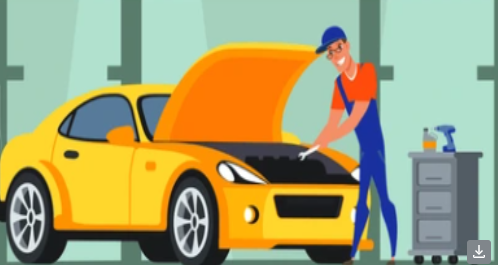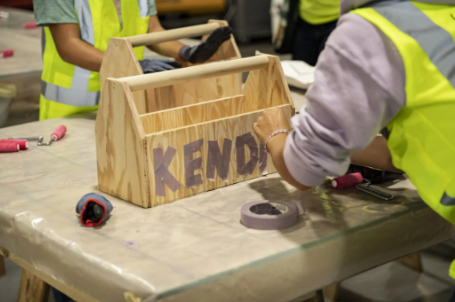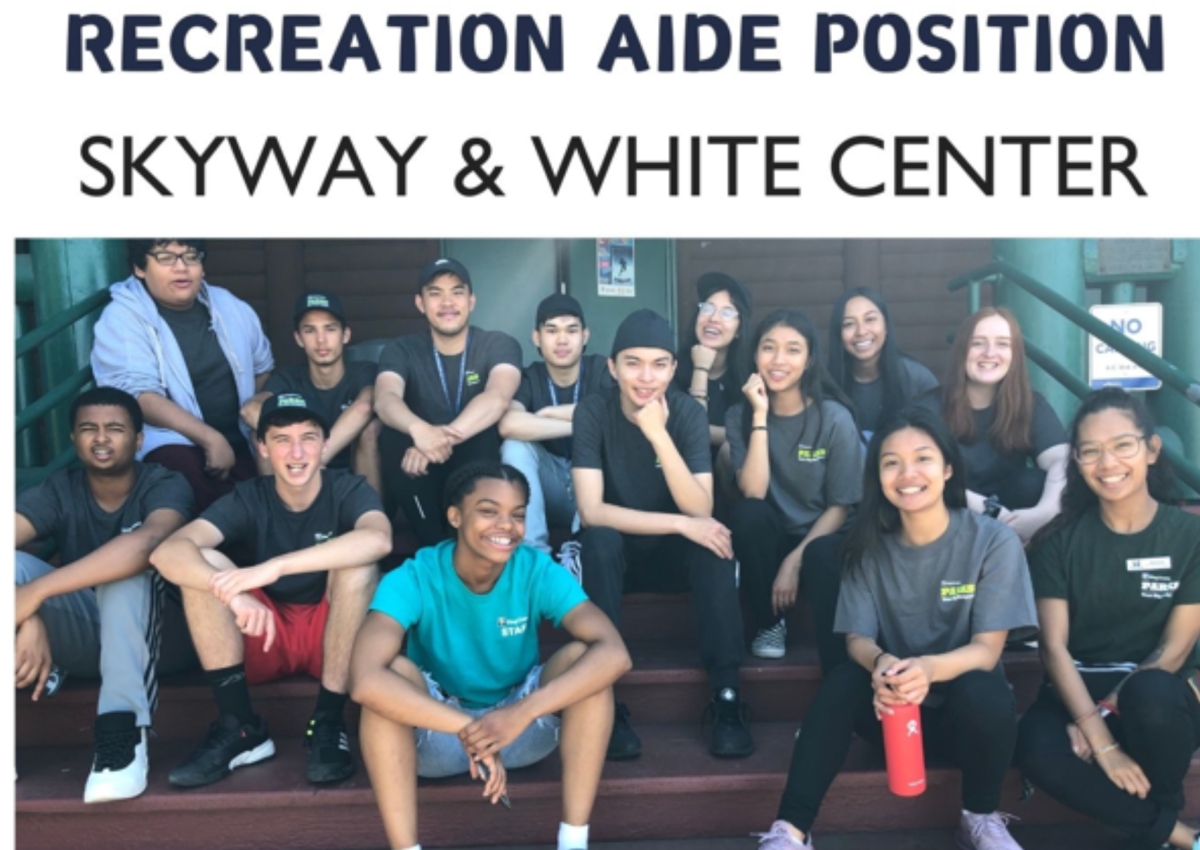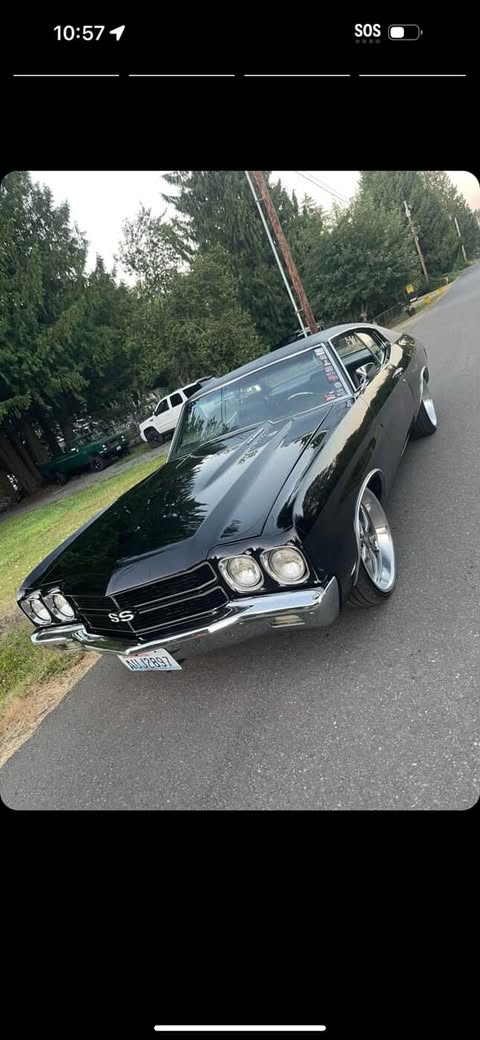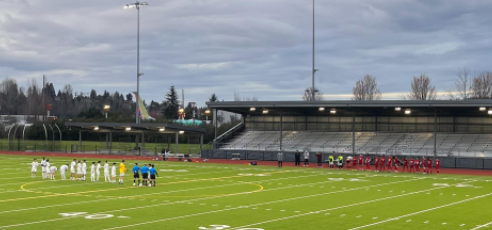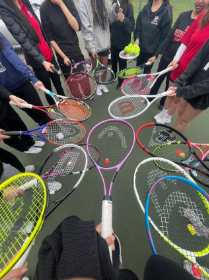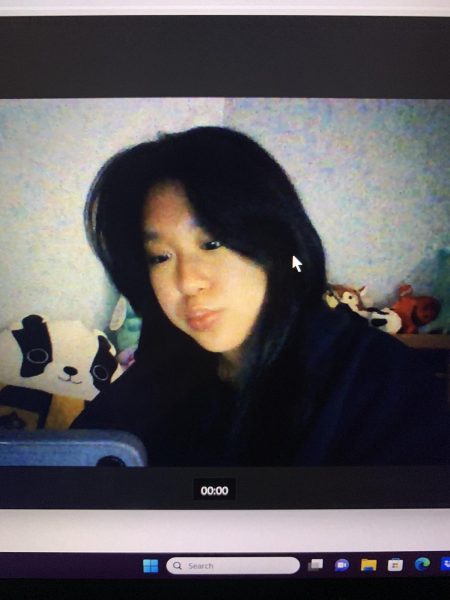Life of a University Student, How did She get to Where She Is Now?
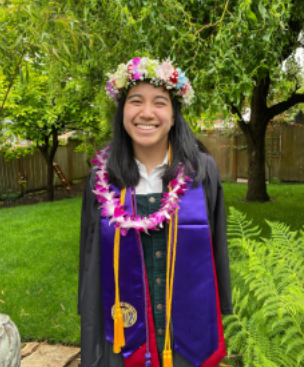
(Lena Nguyen at her home graduation party, celebrating her undergrad degree from the University of Washington.)
Every high school student has the question, what do I want to do after high school? We at Renton Hawk Eye are here to interview Lena Nguyen, a current university student that’s working toward her master’s degree and becoming a future school counselor. She shares meaningful advice to high schoolers, her personal experience with changing majors, how she found her passion working with students, and the challenges she faced along the way.
★ What is your current profession? What are you studying?
○ I am a Restorative Justice Practitioner at a community organization (non-profit) called WA-BLOC (Washington Building Leaders of Change). I work in south Seattle schools and with my team, we go into schools to support community building and collaborate with building leaders to reduce suspensions.
○ I am studying school counseling through Seattle University’s Masters of Education program.
★ What schools have you/are you attending?
○ Rainier Beach High School & Seattle Central Community College – HS Diploma ○ University of Washington – Bachelor’s in Social Work
○ Seattle University – Masters in Education
★ How did you decide your current career path? Were there any moments that sparked your interest in this major?
○ Honestly, this career path came to me because I was angry and frustrated being in schools that constantly hurt their students. I wanted to fight the system every day and re-imagine school, and being able to find my voice with really supportive community friends has led me to this major. School counselors are special people that get to elevate student voices and advocate for change, and that’s what I am learning through this program.
★ What was the process like after highschool to where you are now?
○ After high school, I went to UW thinking I was going to be a nurse (since I finished all of my nursing prerequisites in high school). I studied as a CNA (certified nursing assistant) and worked in a nursing home, but realized the job was too emotional for me.
○ I spent my first year of undergrad reconsidering my major: I served in Jumpstart, which is a government program that bridges college students with under resourced preschools to teach part-time; I took education and social work classes; I spent time reconnecting with my friends on campus. I loved teaching preschool, but wanted to do more advocacy in the community, so I applied to the social work major and got in.
○ I worked an extra year in preschool for the first year of my major. Then during my senior year at UW, I interned as a social worker at Rainier Beach High school, where I ran into restorative justice work at WA-BLOC. It changed my life working there because I was witnessing amazing student leaders that were fighting hard against the racist and unjust systems in schools, which inspired me to fight hard in schools for the right thing.
★ What do you think helped you the most to get into this college? What did you do in high school to help you get into college (extra-curriculars, classes, etc.)?
○ In high school, I worked and volunteered through a lot of different organizations and even during running start, I was involved through student groups:
■ Teamread
■ Hong bang Vietnamese school
■ Student Conservation Association – Environmental Education Job
■ Northwest Harvest food bank
■ Certified Nursing Assistant school
■ UW Medical Center volunteer program
■ Seattle Central College Spanish Club
○ Running start saved me a lot of money and helped prepare me for the quick-pace of university classes.
★ What was your first major? Why was this your first pick? Why did you switch majors? ○ Nursing because I thought it paid well and would be quick for undergrad. My family also pressured me to choose something STEM related because it was “stable” for the future.
○ After working in a nursing home and volunteering in a hospital, I realized that I was not emotionally ready to be a nurse and found happiness working with kids in schools and advocating for change. Social work was the opportunity for me to do that.
★ What was it like changing majors?
○ Emotionally difficult – my parents were unhappy and didn’t understand what I was doing, so I had to fight with them for a long time to keep peace in my family.
★ How do you think you’d feel if you kept pursuing nursing? Do you think things would be different?
○ I don’t know where I’d be at with my mental health if I pursued nursing because I was emotionally drained and took home many of the stories of the people I worked with. If I stayed as a nurse, I wouldn’t have met the people that inspire and support me right now, so my identity and personality would be very different.
★ What helps you through the stress of school?
○ Setting boundaries with people and work helps me through the stress of school, because then I don’t overwork myself and find actual time to do things that make me happy. Before, I would let work and homework take all of my time, which made me miserable; now I prioritize time to rest and do activities that make me happy, so that I don’t burn out.
★ What is it like working and going to school at the same time?
○ It’s a balance of both joy and exhaustion: I love being in a community with inspiring students and people, but the hours and work doing both are long and tiring. I work during the day, go to school at night, and then do homework on the weekends.
★ How is it balancing work, school, and family?
○ It has been a good balance so far because of the boundaries I set on school work and spending time with my friends. Despite being long days, I make sure to stop doing any work by 8:30 pm on weekdays and finish what I can the next day, so that I can spend time resting. On weekends, I dedicate one day to doing work in the mornings and then spend the rest of the time with family or friends. It took a lot to figure out and experiment with what I needed to do, and I still struggle with time management, but once I set a routine for myself, it all came into place.
★ What was the hardest moment? And how did you push through?
○ The hardest moment of high school was the first quarter of doing running start, because I was alone most of the time and didn’t have a lot of friends doing it with me. Being in adult spaces alone was really weird and my high school didn’t have a lot of resources to support their students once they started running start.
■ I pushed through by finding people and clubs to find community in and with!
★ When you were still a high school student, did you know what you wanted to do after high school? Did you always know what you wanted to do?
○ I didn’t know that this is what I wanted to do! I thought I was going to be a nurse because of the pay and quick undergraduate degree, plus I was shy so I never thought I would work with kids. I do remember wishing that I could be a teacher or advocate in the community because I wanted to fight for our students. I admired people who were fearless in speaking up and were unafraid of approaching new people. Here I am now, working with students…
★ What is a piece of advice that someone gave to you that you still use?
○ Take good risks, be patient with yourself, and make time to take care of your mental health!
★ What life tips/advice would you give to a high school student?
○ Your mental health is important and speak up for yourself. In high school, I took it way too seriously and didn’t give myself a break at all. I stressed about everything and took everything seriously (as I should for the future), but I didn’t spend time making good friends, getting to know my community, and literally enjoying my experience of growing up. Now, I realized I missed out a lot because I was so focused on passing high school and never stood up for what I needed.
■ I know your teachers get on you for being successful in school, and know that success isn’t just a letter grade. Allow yourself time to learn how to take care of yourself, learn about who you are and literally have fun.
Lena Nguyen is a great advocate who fights against the unjust and racist systems in a handful of schools. Although she didn’t have the typical college path as she switched majors, students and peers can see that she is truly passionate about what she does and is a great role model for her students. Lena speaking out about her journey throughout high school and college, learning to take mental breaks, and how she manages her workload provides great guidance and advice for current students who are also currently navigating their future!




